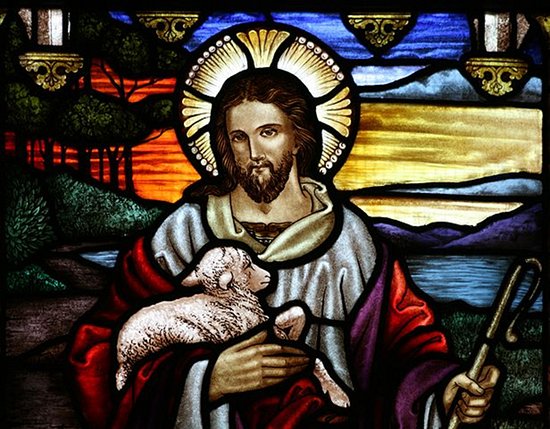In several of His sermons and public addresses, Jesus referred to Himself as the “good shepherd” and to his followers (the Church) as His flock. Back then, shepherding was a common activity, so people were able to fully understand the meaning behind His comparisons.

However, nowadays, specially if you’ve always lived in a big city like I have, you may not be able to grasp all the implications of this illustration.
First of all, nowadays we tend to think of shepherding as a job. The shepherd takes care of the sheep during the day, then late afternoon he puts them all inside a safe place and go home to watch TV, or something like that.
But Jesus wasn’t talking about someone’s job, but about someone’s reason to live. A relationship so strong that the shepherd would be willing to lay down his life for any of his sheep.
See the example He gives us in John 10:11-13:
“I am the good shepherd. The good shepherd lays down his life for the sheep.
The hired hand is not the shepherd and does not own the sheep. So when he sees the wolf coming, he abandons the sheep and runs away. Then the wolf attacks the flock and scatters it.
The man runs away because he is a hired hand and cares nothing for the sheep.”
He makes it clear that if someone is doing it only for the money, they will go so far. They won’t risk much if they’re doing it for the paycheck. They’d rather lose their job than risk their life or reputation or dreams.
However, if they really love the sheep, they would rather die than see them get hurt.
The role of a shepherd was so significant that God chose two shepherds to be two of major leaders of His people: Moses and David.
Moses was a shepherd for 40 years, after he left Egypt (check Exodus 2:11-25). And he was shepherding His flock when God came to him and called him to the mission of his life: go back to Egypt and free His people (check Exodus chapters 3 and 4).
David was a shepherd before he became a mighty warrior and later the greatest king of Israel. In fact, David risked his life at least twice, that we know of, in order to protect his flock:
But David said to Saul, “Your servant has been keeping his father’s sheep. When a lion or a bear came and carried off a sheep from the flock, I went after it, struck it and rescued the sheep from its mouth. When it turned on me, I seized it by its hair, struck it and killed it. Your servant has killed both the lion and the bear.” (1 Samuel 17:34-36)
Then later, with the same courage he had shown as a shepherd, David faced Goliath with the same tools he used to protect his flock: his staff, his sling, five stones and an unshakable faith in God:
The Lord who rescued me from the paw of the lion and the paw of the bear will rescue me from the hand of this Philistine. (1 Samuel 17:37)
So when God looks for a leader for His people, that’s the first characteristic he looks for: unconditional love. Love for God and love for people (Matthew 22:36-40), like a good shepherd.
It’s not about a paycheck, reputation, fame, glory, popular recognition. It’s about giving one’s life for others. Like Jesus did.
This is the first post of a new series about the Good Shepherd. Stay tuned for more!
Photo Credit: Stained glass at St John the Baptist’s Anglican Church [1], Ashfield, New South Wales; photo by Toby Hudson (Creative Commons).

One of the topics brought up at church — this was “me” several days ago when I was interrupted with life. Sorry.
The main point made was that the shepherds were among the lowest of the low in terms of social culture. They weren’t appreciated very much and were treated like ignorants. And yet they were approached by the angels, they saw Jesus first, and HE presented Himself as a Shepherd and us as the uncontrollable, unteachable, unlearnable segment of the world and taking us to Eternity with Him. Guess that puts us in the right overall picture… we ain’t special unless HE is the Shepherd that will guide and keep us. Couldn’t be more grateful!
Great point, Joanne. We indeed have to be grateful that He chose to present Himself to us as a loving shepherd, that guide us and takes care of us. And love us to death, literally.